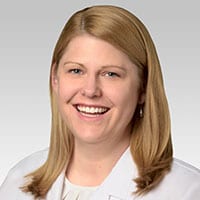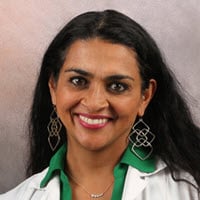This transcript has been edited for clarity.
Kathrin LaFaver, MD: Welcome, on behalf of Medscape Neurology. We will be talking today about highlights from the international meeting of the Movement Disorder Society.
I'm Kathrin LaFaver. I'm a movement specialist here in Saratoga Springs, New York, and I will be talking with Dr Indira Subramanian, who is a clinical professor at UCLA and director of the VA Center in LA as well. Thanks, Indu, for talking with us.
I was not able to attend the Movement Disorder Society (MDS) meeting, in beautiful Madrid, Spain, which was the first in-person meeting since 2019. Tell us all about it. What was your overall impression?
Indu Subramanian, MD: There's still a transition coming from the depths of the pandemic to getting out. One thing that many of us realized was just how much it means to be able to connect in person with each other again, and how social connection for us as healthcare providers is just so key.
We had in-person connection in the meeting halls. Then, of course, in Madrid, there are opportunities for out-of-meeting-hall connection as well. We were able to gather together and meet for the first time in, honestly, almost 3 years. It was very meaningful to reconnect.
The pendulum has swung. The pandemic highlighted a number of issues around many things that we haven't been doing right historically around diversity, equity, and inclusion types of causes. There was a little bit more content around some of that.
The MDS is really a global organization. There was a huge impact of looking at the international landscape of the world with Parkinson's disease and related disorders.
I was able to meet and greet with Dr Okubadejo, who is the Africa Section Head — really inspiring —and attended number of talks around the global climate, how COVID-19 has affected these populations of patients that we take care of, and how we should provide care for these folks moving forward. It's a very interesting climate to go to a meeting around.
Wellness Task Force
LaFaver: That's great to hear. It's always been an international society, but historically, there was a tendency to focus more on North America and Europe. It's great to bring in more diversity and meet needs of people in other parts of the world.
Before we talk about some scientific updates, I was very curious about the task force that you are chairing that is centered around wellness for Parkinson's disease. Why don't you tell us about that?
Subramanian: Yes. This is a really exciting time. You and I, Kathrin, believe that lifestyle choices patients make every day can make a difference not only in Parkinson's disease, but also in many disease states in medicine, in general, including other diseases in neurology, ranging from Alzheimer's disease to headache. Lifestyle choices and prescriptions are part of the dialogue of counseling.
We haven't really focused on this in the Parkinson's world. Many times, our patients tell us that from diagnosis, they walk away, sometimes, with just a diagnosis and a pill, and come back in 6 months. The sense is that this is very compartmentalized care and that the neurologist is driving it. They often feel lost about what to do in the 6 months that intervenes between these visits.
We've really been trying to shift the paradigm. My hope is to bring the concept of wellness, lifestyle choices, understanding the person more holistically, and the various components of health that matter. If you think about Parkinson's disease, much of what we have focused on is motor symptoms, like tremor. We have not really thought much about nonmotor symptoms, let alone mental health, which is a huge part of the care of Parkinson's disease.
We've only focused on the disease and haven't been thinking about the whole person. When we think about the wellness prescription, we are hoping to work with this task force to understand how to deliver this better and what that would include. This is a new opportunity, I think, to present this to our society, and hopefully, to change the paradigm for people living with Parkinson's disease to really be much more proactive.
One of the things that I think we've done as a group is to better understand the prodromal time period of Parkinson's, and to find ways to identify genetic carriers of mutations that might lead to Parkinson's disease. We've really not had much to offer those patients.
What do we tell somebody who may be at risk with this percentage chance of getting Parkinson's? We don't have disease-modifying therapies, so I think the wellness prescription could fit there and really, from diagnosis, be part of the counseling.
A colleague of mine said that this is the sort of stuff that we might spend the last 1 minute of a 30-minute visit talking about as the patient's about to leave your office. Maybe we should really be bringing that right up front and center, caring about these choices and counseling people from the get-go, and making that part and parcel of what we counsel them much earlier on in that appointment.
We should engage a multidisciplinary team approach with people like physical therapists and psychologists and whoever touches the patients in their daily lives. That could, in many settings, even be a religious leader, a yoga teacher, or whomever. We need to engage those people in the community, understand the family dynamic, and understand not only the person and their motor symptom but also this much more holistic approach.
Those are some exciting things that we hope to bring. We were able to meet with our wellness task force of 20 people. We had 200 applicants. We picked some very cool people, and it's a very multidisciplinary team. We had 30 minutes to present on this to the global society, and we had a packed room. We were really excited, and many people want to get involved and understand how they can do it.
I was really shocked also about the number of people already running wellness centers in Parkinson's disease and related disorders around the world. We met some people who are doing some really cool things, including an Italian sailing club for patients with Parkinson's; folks in Australia who are doing Zumba together; people in Africa who are watching videos on a cell phone and having a room of people in the background doing yoga.
There are really cool things happening worldwide. We have the opportunity to engage more of a multidisciplinary group that includes allied health professionals, which the society is now being proactive about welcoming to our membership as well. We're trying to get as much headway in some of these spaces as possible, and hopefully we can work together to make a difference.
Part of the wellness prescription is also this cultural context, so understanding who the person is. Are they a woman? Are they young? Are they a person of color? Are they living in a place where they have very low socioeconomic abilities? Can they even get levodopa in parts of Africa, for example?
What are the basic things that we can teach anyone who may not have resources around diet, exercise, sleep, social connection, mind-body approaches, and things like that, to really meet people where they are and to help them live better with their Parkinson's? That's our hope.
Our task force is going to be doing a survey to all our members of the MDS. Then we'll be gathering that information and writing a paper on where we are now in terms of the evidence, and then, hopefully, we will work together to create a prescription.
Stay tuned because, I think, even if you're a general neurologist or somebody who might be working out there, we realize that in many parts of the world, people who are seeing patients from diagnosis may not be neurologists. I heard a statistic that in the US, 50% of patients with Parkinson's don't see a neurologist in their first 4 years of disease.
We have to really expand this message to primary care physicians, geriatricians, and other types of doctors who might be meeting our patients and giving them the diagnosis. I'm very excited about this task force.
LaFaver: Wonderful. I'll be looking forward to what's going to come out of this. Opening minds, being more proactive, and empowering patients is a wonderful message.
Thank you so much. Have a good rest of your day.
Follow Medscape on Facebook, Twitter, Instagram, and YouTube
Medscape Neurology © 2022 WebMD, LLC
Any views expressed above are the author's own and do not necessarily reflect the views of WebMD or Medscape.
Cite this: Kathrin LaFaver, Indu subramanian. Wellness as Therapy for Parkinson's Disease: The Multidisciplinary Approach - Medscape - Oct 24, 2022.














Comments